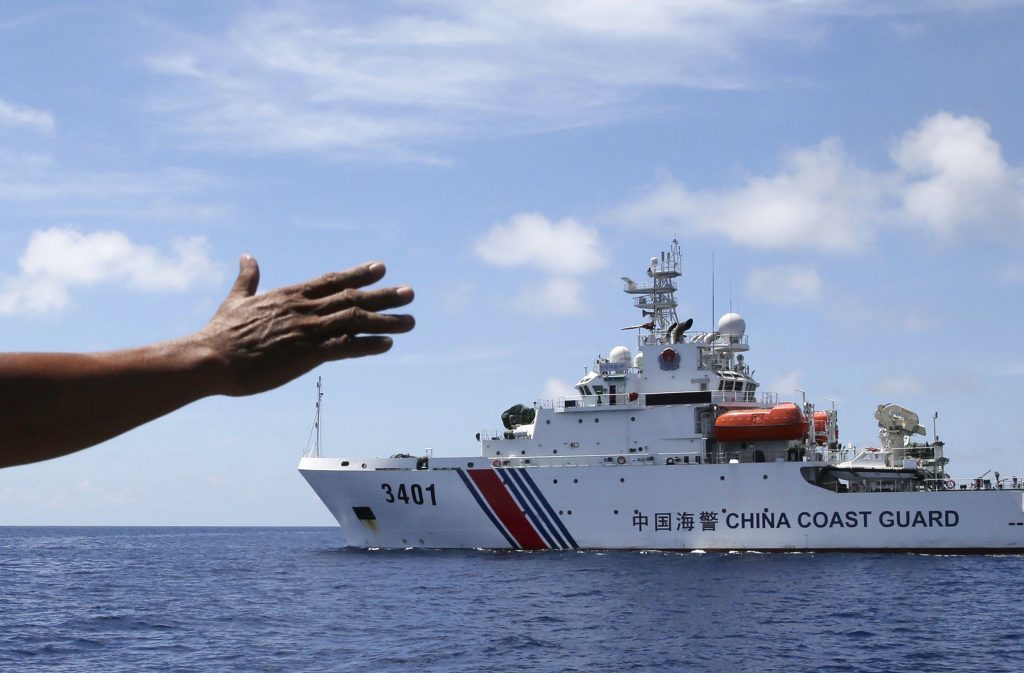
China has issued a policy paper calling the South China Sea islands its territory as it blamed the Philippines for stirring trouble, a day after an international tribunal ruled that Beijing had no legal basis for its expansive claims.
“It is the Philippines that has created and stirred up the trouble,” vice foreign minister Liu Zhenmin said, introducing the paper.
The Philippines sought arbitration from the tribunal on several issues related to its territorial disputes with China.
The tribunal in The Hague, Netherlands, rejected China’s claims in a landmark ruling that also found the country had aggravated the seething regional dispute and violated the Philippines’ maritime rights by building up artificial islands that destroyed coral reefs and by disrupting fishing and oil exploration.
While the decision is seen as a major legal declaration regarding one of the world’s most contested regions, the true impact is uncertain, given the tribunal has no power of enforcement.
In the new policy paper, China asserts its sovereignty over the South China Sea islands and their surrounding waters and opposes other countries’ “illegal claims and occupation”.
The paper blamed the Philippines for breaking an agreement with China to settle the disputes through bilateral negotiation and said Manila “distorted facts and concocted a pack of lies” to push forward the arbitration proceedings.
Still, Mr Liu said, China remained committed to negotiations with the Philippines, noting new president Rodrigo Duterte’s positive remarks on the issue.
“China stands ready to work with the new Philippine government,” Mr Liu said, adding that “early removal of obstacles posed by the arbitration case” would help efforts to improve relations.
While the findings cannot reverse China’s actions, it still constitutes a rebuke, carrying with it the force of the international community’s opinion. It also gives heart to small countries in Asia that have helplessly chafed at China’s expansionism, backed by its military and economic power.
“The Philippines strongly affirms its respect for this milestone decision as an important contribution to ongoing efforts in addressing disputes in the South China Sea,” Philippine foreign secretary Perfecto Yasay said in Manila, calling on “all those concerned to exercise restraint and sobriety”.
Former foreign secretary Albert del Rosario, who helped oversee the filing of the case, said the ruling underscored “our collective belief that right is might and that international law is the great equaliser among states”.
Six regional governments have overlapping territorial claims in the South China Sea – waters that are rich in fishing stocks and potential energy resources and where an estimated £3.8 trillion in global trade passes each year.
The disputes have also increased friction between China and the United States, which has ramped up its military presence in the region as China has expanded its navy’s reach further offshore.
White House spokesman Josh Earnest reacted to the ruling by encourage all parties to “acknowledge the final and binding nature of this tribunal”.
He said the United States was not a claimant in the case and that it sought a peaceful resolution to disputes and competing claims in the region, while preserving the US’ ability to engage in the freedom of navigation and commerce.
The Philippines, under a UN treaty governing the seas, asked in 2013 for arbitration on a number of issues it had with treaty co-signee China.
The five-member panel from the Permanent Court of Arbitration in The Hague unanimously concluded China had violated its obligations to refrain from aggravating the dispute while the settlement process was continuing.
It also found that China had interfered with Philippine petroleum exploration at Reed Bank, tried to stop fishing by Philippine vessels within the country’s exclusive economic zone and failed to prevent Chinese fishermen from fishing within the Philippines’ exclusive economic zone at Mischief Reef and Second Thomas Shoal.
China, which boycotted the entire proceedings, reiterated that it did not accept the panel’s jurisdiction. China “solemnly declares that the award is null and void and has no binding force. China neither accepts nor recognises it”, a statement from the foreign ministry said.
It added that “China’s territorial sovereignty and maritime rights and interests in the South China Sea shall under no circumstances be affected by those awards”.
The ministry repeated China’s often-expressed stance that the Philippines’ move to initiate arbitration without China’s consent was in “bad faith” and against international law.
Australian foreign minister Julie Bishop said China’s reputation and ambitions of becoming a world leader would suffer if it ignored the South China Sea ruling.
“To ignore it would be a serious international transgression,” she said. “There would be strong reputational costs.”
Japan’s foreign minister Fumio Kishida said the tribunal’s decision was “final and legally binding” and that the two sides should obey it.